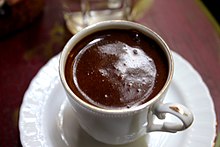This article needs additional citations for verification .(April 2013) |

Many matters of etiquette in the Middle East are connected to Islam as it is written in the Qur'an and how it has been traditionally understood and practiced throughout the centuries. Prescribed Islamic etiquette is referred to as Adab, and described as "refinement, good manners, morals, ethics, decorum, decency, humaneness and righteousness". [1]
Contents
As such, many points discussed in this article are applicable in other regions of the Islamic world. This holds especially true in Muslim majority countries outside Middle East.

The Middle East is home to many people who follow faiths besides Islam. [2] Most notable among them are the churches of Eastern Orthodox Christianity, Copts and other adherents of Oriental Orthodoxy, Maronites, Melkites other Catholics of the Eastern Rites as well as the Roman Rite, Druze, [3] Zoroastrians, Baháʼís, Yazidis, Mandaeans, and various Jewish denominations.
In many cases, however, Muslims and non-Muslims in the Middle East will share characteristics, whether it is the prohibition against pork ordained by both Islamic and Jewish dietary restrictions, a preference for the beverage widely known elsewhere as "Turkish coffee", or knowledge of how to conduct business in a crowded souk without being cheated. It is a place where people with different beliefs often share the same traditions.
